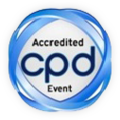
Sana Kanwal
Hamdard Institute of Pharmaceutical Sciences, Islamabad
Title: A Descriptive cross sectional study assessing perceptions and knowledge of pharmacists regarding use of complementary and alternative medicines (CAM) in twin cities
Biography
Biography: Sana Kanwal
Abstract
The study purports to assess perceptions and knowledge of pharmacists (hospital and community) regarding use of complementary and alternative medicines (CAM). Methodology Data was collected through self administered questionnaires. Hospital and community pharmacists from twin cities (Islamabad and Rawalpindi) were included in this study. Simple random sampling technique was employed to select community pharmacies (Rawalpindi and Islamabad) from the sampling frame. However all tertiary care/ specialized care hospitals (public/private) were visited. Convenient sampling technique was employed to collect data from both hospital and pharmacists. Data collected from practicing pharmacists via questionnaires, was coded and analyzed by using SPSS (version 16.0). Results Total 244 practicing pharmacists (community and hospital pharmacists) participated in this study, 52.9% were male while 47.1% were female. The results of the study revealed that most of the respondents (74.2%) were of the opinion that pharmacists should be provided with proper training regarding CAM use. Majority of the respondents (54.9%) were of the view that herbal products available in market don’t meet quality standard (safety and efficacy). The results indicated that knowledge of pharmacists regarding herbal remedies was inadequate. However knowledge regarding indications of herbal drug use was better than that of adverse effects and drug-herb interactions. Conclusion This study highlighted gaps in knowledge of pharmacists regarding rational use of herbal remedies. It suggested that practicing pharmacists (community/hospital) should be provided with training regarding safety and efficacy of CAM so that they become capable enough to provide adequate information to patients regarding rational use of CAM.

